Are Property Taxes Included in Your Mortgage? What Texas Homeowners Need to Know
October 8, 2025

Key Takeaways:
- How Mortgage Escrow Accounts Handle Property Taxes: Knowing how escrow accounts manage property taxes helps Texas homeowners anticipate monthly costs and confidently plan their budgets.
- Steps to Confirm If Your Loan Servicer Is Collecting: Clear actions, like reviewing statements, checking county records, and contacting the servicer, allow homeowners to verify if property taxes are included in their mortgage, reducing the risk of missed payments.
- Correcting an Escrow Shortage or Surplus: Homeowners can address shortages by paying the balance in a lump sum or spreading the difference across future payments. Surpluses are refunded or credited, and applying exemptions such as the homestead exemption can lower taxable values and reduce escrow amounts.
Owning a home in Texas is a major investment and, at times, a crash course in local tax laws. One of the most common questions homeowners face is whether property taxes are already wrapped up in those monthly mortgage payments. If you’ve ever stared at your mortgage statement, wondering if you’re set for tax season or due for a surprise bill, you’re not the only one.
In this guide, our team explains how property taxes fit into Texas mortgages, simplifies the role of escrow accounts, and highlights practical ways to manage rising costs. From exemptions to the protest process, we’ll walk through what homeowners need to know so property taxes feel less like a mystery and more like a manageable part of homeownership.
How Mortgage Escrow Accounts Handle Property Taxes in Texas
For many Texas homeowners, the monthly mortgage payment is the lifeline that keeps the house secure, the lights on, and the county tax office satisfied. Property taxes are often part of that payment, yet the way they are managed is tucked away in the mechanics of a mortgage escrow account. Learning about this process makes tax season feel less like a looming storm and more like something you can prepare for.
What an Escrow Account Really Does
When a home loan closes, lenders typically create an escrow account that works like a holding pen. Each month, a slice of your payment goes into that account. Then, when county appraisal districts send out tax bills, usually in the fall, the lender pulls from escrow and pays on your behalf.
This arrangement matters because property taxes in Texas can run high. Instead of scrambling to gather thousands of dollars at once, escrow spreads the cost across the year. According to the Texas Comptroller, these taxes fund essential services like schools, roads, and public safety, which explains why the bills often feel steep.
Why Most Homeowners Go With Escrow
Many lenders require it, yet even when escrow is optional, homeowners often choose it for the breathing room it provides. Knowing your servicer will pay the tax office on time removes the risk of late fees or liens, and it makes monthly budgeting more predictable. At the same time, our team encourages homeowners to stay alert, as reviewing your escrow analysis each year shows exactly how changes in value are shaping your bill.
Exemptions That Lighten the Load
Exemptions have a powerful role in shaping how much money your lender collects for taxes. A homestead exemption lowers the taxable value of your residence, easing what goes into escrow. A disabled veteran exemption can cut that burden even further, in some cases wiping out the property tax bill entirely, depending on the disability rating.
When exemptions are approved, lenders should adjust escrow contributions to reflect the lower tax obligation. Yet delays and clerical errors happen, which is why our team stresses checking your appraisal district records and sharing updated exemption notices with your lender.

Steps to Confirm If Your Loan Servicer Is Collecting Property Taxes
For Texas homeowners, the question of whether property taxes are wrapped into the mortgage can feel confusing. To figure out if your loan servicer is handling your property taxes, follow these clear, practical steps:
Check Your Monthly Mortgage Statement
Start with your mortgage statement. Most lenders include a payment breakdown that shows where each portion goes. Look for a line labeled “escrow” or “taxes & insurance.” If it appears, a share of your monthly payment is being set aside for property taxes.
Review Your Annual Escrow Analysis
Each year, loan servicers conduct an escrow analysis and send homeowners a statement. This document outlines how much was collected for property taxes and insurance, how much was paid out, and whether the account shows a surplus or a shortage. Reviewing this analysis closely can reveal changes tied to rising appraisals or tax rates.
Contact Your Loan Servicer
Reaching out directly can remove any doubt. Call your mortgage company or send a secure message through your online account. Ask clearly: “Are property taxes included in my monthly payment, and do you pay my county tax office directly?” This confirmation gives you peace of mind about where your money is going.
Inspect County Appraisal District Records
County appraisal districts, including TAD in Tarrant County, post tax payment histories online. Searching your property address lets you see whether the latest bill has been paid and by whom. When the loan servicer pays, their name usually appears as the payer.
Watch for Annual Tax Statements
Every fall, Texas homeowners receive tax statements in the mail. Even if your servicer pays on your behalf, you may still receive a copy. Often, the bill notes that payment is expected from a lender or servicer. Keeping an eye on these notices helps confirm that your account is in good standing. By checking each of these points, you’ll know exactly how your property taxes are managed. Our team encourages homeowners to stay proactive, since catching errors early can prevent inflated escrow bills.

Pros and Cons of Rolling Taxes Into Monthly Mortgage Payments
Rolling property taxes into monthly mortgage payments is a common arrangement for many Texas homeowners, but it isn’t the only option, and it comes with some clear advantages and drawbacks.
Pros
- Easier Budgeting: One standout advantage is predictability. Instead of scrambling to come up with a large sum when taxes are due, homeowners can spread the cost across the year. The mortgage servicer collects an estimated amount for taxes each month and pays the county tax office when the bill comes due.
- No Missed Deadlines (or Late Fees): With escrow, the risk of missing a tax payment drops to zero. The mortgage servicer handles the logistics, ensuring taxes are paid on time and homeowners avoid costly penalties or unpleasant surprises.
- Peace of Mind: Some homeowners find that not having to track separate tax deadlines is a real relief. There’s one less bill to worry about, and the mental clarity from fewer financial due dates can make day-to-day life that much simpler.
Cons
- Less Control Over Your Own Money: Paying taxes through escrow means handing over control to the mortgage servicer. Homeowners can’t park that cash in a high-interest account or use it elsewhere until tax season.
- Potential Escrow Shortages or Surpluses: Mortgage servicers estimate how much to collect for taxes based on prior years and projected changes. But if home values (and taxes) rise suddenly, an escrow shortage may occur. This requires a lump sum payment or increased monthly costs. If estimations overshoot, homeowners may end up with a surplus, refunded later, but still tying up funds needlessly.
- Less Transparency: While escrow simplifies things, it sometimes means less direct visibility into how much is owed or when payments are due. Homeowners relying solely on the escrow process might miss property tax increases or not notice errors on tax bills until it’s too late.
Correcting an Escrow Shortage or Surplus on Your Statement
You might open your mortgage statement to discover your escrow account is running a shortage, or, on the brighter side, a surplus. By following a few clear steps, you can spot errors, see why the balance shifted, and work with your lender to keep your mortgage payments on track.
- Review your escrow analysis: Go line by line to see what the lender collected and what was paid out for property taxes and insurance. Compare the property tax amount against your county appraisal district’s official bill to confirm accuracy.
- Identify whether the issue is a shortage or a surplus: A shortage usually happens when property taxes or insurance premiums increase and the lender didn’t collect enough. A surplus often appears when costs drop due to exemptions, such as a homestead or disabled veteran exemption, or after a successful property tax protest.
- Address shortages promptly: Lenders typically give you two options: pay the shortage in a single lump sum or spread the difference over the next year. A lump sum clears the balance immediately, while spreading payments means your monthly mortgage bill will increase until the shortage is covered.
- Notify your lender about recent exemptions or adjustments: If you’ve secured a lower tax bill, share the updated paperwork with your loan servicer. Providing copies of corrected tax bills can speed up escrow recalculations.

Final Thoughts
Property taxes and mortgages often feel like two sides of the same coin for Texas homeowners, and learning how they connect is vital to protecting your budget. When property taxes are included in your mortgage, your lender handles the payment to the county tax office. When they aren’t, the responsibility falls on you to pay the bill directly. Staying clear on which system applies to your home is the best way to prevent costly penalties.
The sheer volume of rules and terminology can make navigating Texas property tax laws seem intimidating. At Texas Tax Protest, maximizing your savings and simplifying your property tax experience is the foundation of what we do. If you have questions or want strategic guidance, count on our experts to break the process down and advocate on your behalf.
Read More:
- How Local School Districts and Governments Impact Your Property Taxes
- Texas Property Tax Relief Bills: Key Updates And Potential Savings
- What Really Happens During a Property Tax Protest Hearing?
Frequently Asked Questions About Property Taxes and Your Mortgage in Texas
Are property taxes included in monthly mortgage payments in Texas?
Often, yes. Many Texas homeowners pay their property taxes as part of their monthly mortgage payment. This is possible through an escrow account, where your lender collects extra funds with each payment and then pays your tax bill when due. Your mortgage statement will typically indicate if an escrow is in place for property taxes.
Can I pay property taxes separately from my mortgage in Texas?
In many cases, you can. Some lenders allow homeowners to pay property taxes directly, especially if you have a strong payment history or a significant equity stake in the property. Before making any changes, check your loan agreement or talk with your lender about options for managing property tax payments outside escrow.
What happens if my lender fails to pay property taxes from my escrow account?
This is rare but serious. If a lender misses a tax payment, homeowners could face penalties or even risk tax liens. Contact your lender immediately to resolve the issue and request proof of payment. You also have the right to check tax payment status directly with your county’s assessor or appraisal district.
Do all Texas lenders require escrow accounts for property taxes?
Not always. While escrow is common, especially for buyers with smaller down payments, some lenders offer mortgage products that allow you to pay taxes separately. Requirements can differ depending on your lender, your credit profile, and the type of loan.
Can my mortgage payment increase if property taxes go up?
Absolutely. Since escrow payments for property taxes (and sometimes insurance) get recalculated annually, rising property taxes will increase your monthly mortgage payment as your lender collects more to cover the anticipated costs. Keeping an eye on tax assessments can help you anticipate these changes and take action if your assessment seems high.
How do I check if property taxes are included in my mortgage payment?
The fastest route is to review your monthly mortgage statement. First, look for a breakdown showing escrow payments. You can also contact your lender to confirm whether your property taxes are paid through escrow or if you’re responsible for making those payments directly.











